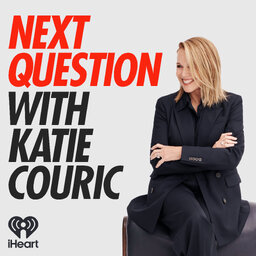Is ageism getting old?
Getting older should be something to celebrate. Instead, our youth-obsessed culture tells us we need to get rid of our wrinkles, dye our gray hair, and shave years off of our LinkedIn profiles, or risk becoming irrelevant—or worse, invisible. But why do we treat the very normal process of aging like it’s something to be ashamed of? On this episode of Next Question, Katie talks to an amazing group of women who refuse to apologize for acting (and looking) their age: Lyn Slater, a.k.a. the Accidental Icon; supermodel JoAni Johnson; anti-ageism activist Ashton Applewhite; and legendary advertising executive Cindy Gallop. Katie and her guests discuss the roots of our implicit biases against older people (especially older women), the social and economic costs of ageism, and why you should never say “thank you” when someone says you look good for your age.
Learn more about your ad-choices at https://www.iheartpodcastnetwork.com
In 1 playlist(s)
Next Question with Katie Couric
Tired of political headlines that feel like déjà vu? Wondering if you actually need to care about ev…Social links
Follow podcast
Recent clips

The Heart of Longevity with Dr. Rhonda Patrick
1:11:59

Kate Hudson At Her Best
39:12

Katie’s One-on-One With PA Governor Josh Shapiro
53:29
 Next Question with Katie Couric
Next Question with Katie Couric